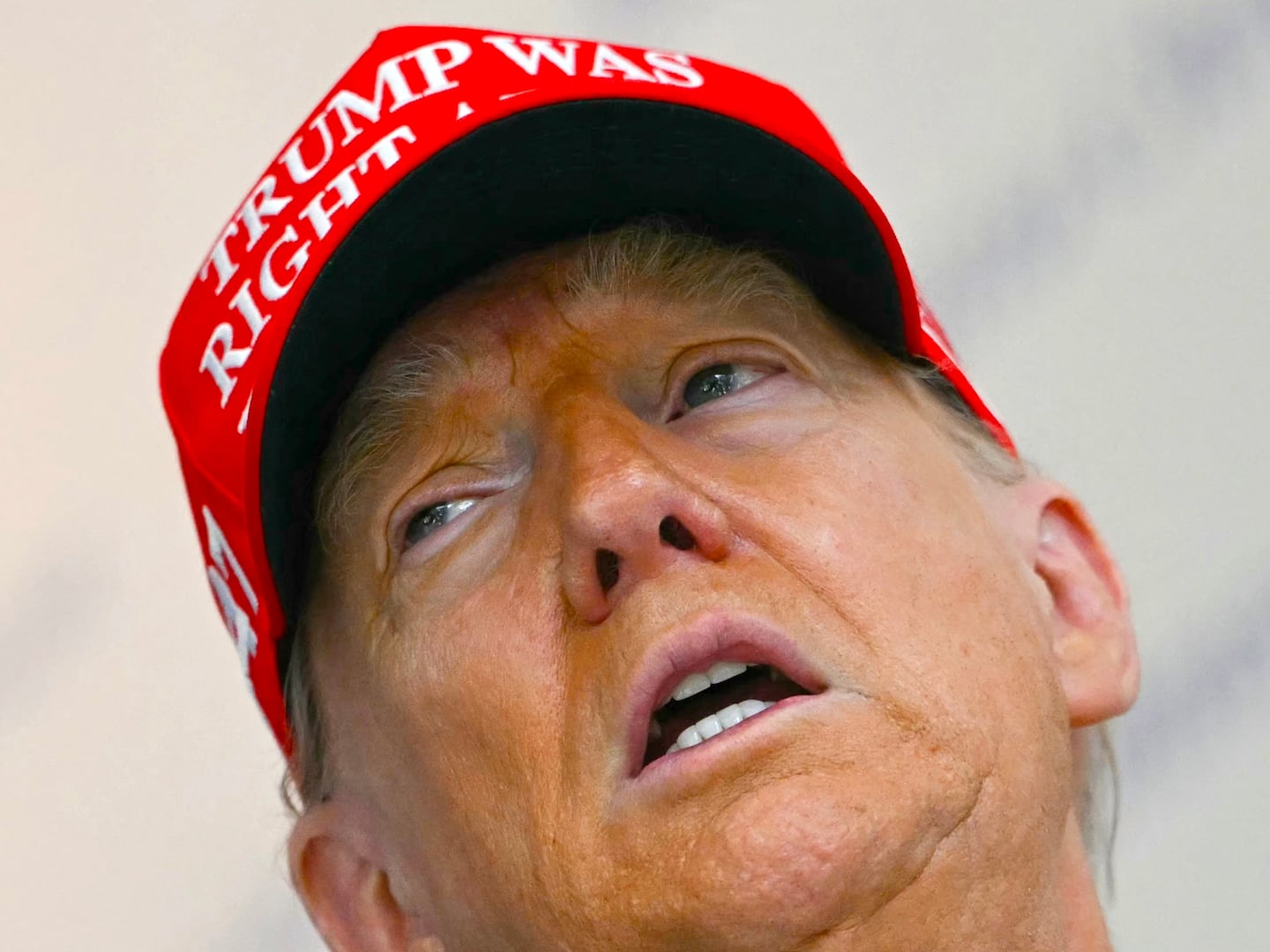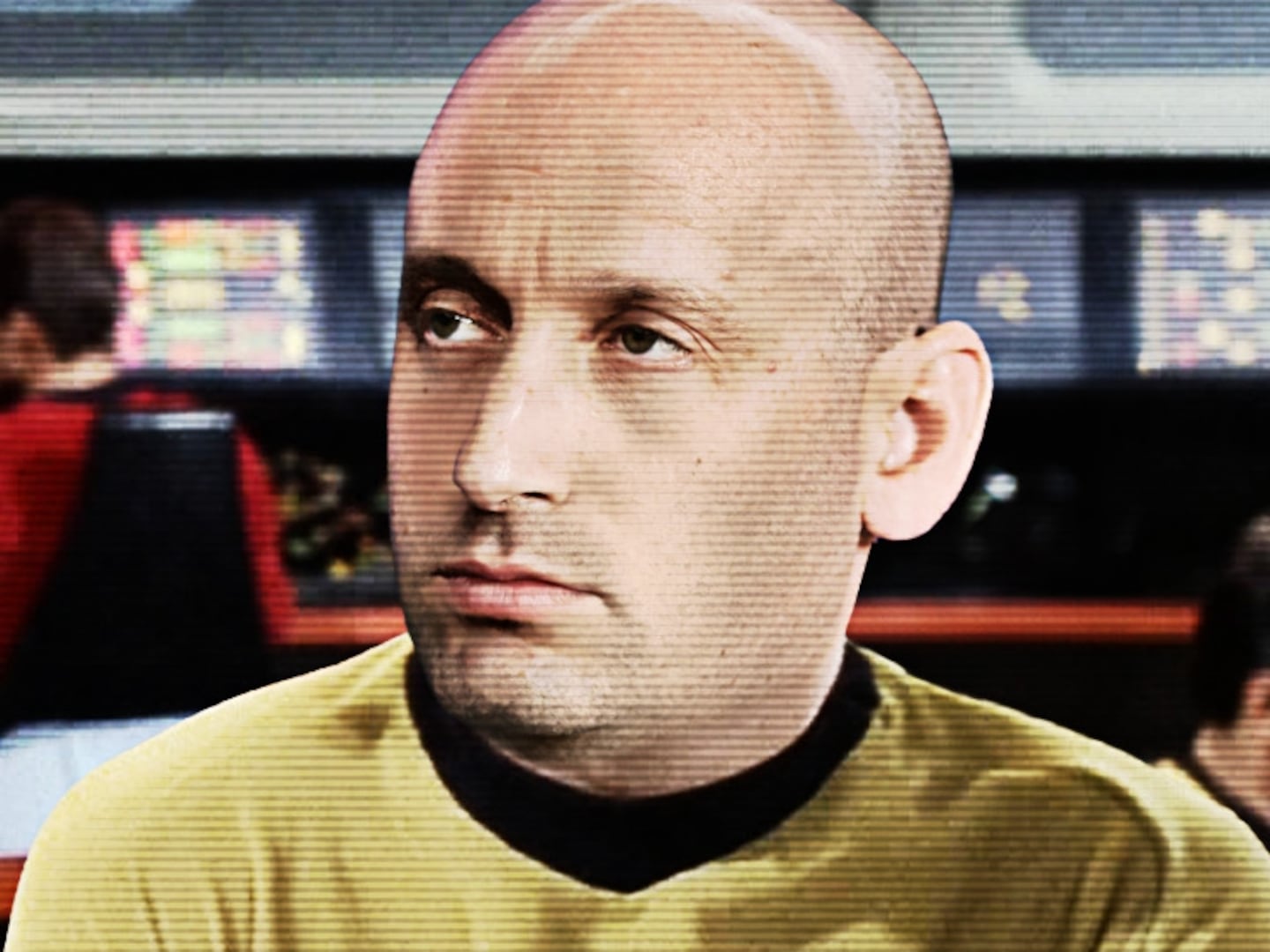For all those Republican presidential candidates struggling to be seen and heard over the eye-popping, ear-splitting media clatter that attends real estate mogul Donald Trump, Lindsey Graham, armed with a cellphone as a prop, has shown the way.
So far, top-tier GOP primary contenders such as Jeb Bush, Scott Walker, Marco Rubio, Rand Paul, Mike Huckabee, Ted Cruz, and even Ben Carson have enjoyed little success in getting mainstream news outlets to pay much attention to their meticulously crafted messages as presented in their campaign videos.
Their national polling averages might guarantee them a soapbox in the August 6 Fox News debate, but they trail badly behind their never-elected-to-anything rival.
Everything they say and do, at least for now, is measured against the latest tabloid-ready sound bite from the egomaniacal, weirdly coiffed reality show star.
Former Florida governor Bush—the richly financed preference of the Republican establishment—is running five points behind the political neophyte in the latest national averages, and a shocking 12 points behind Trump’s 24 percent in the most recent Washington Post-ABC News poll.
Bush’s announcement ad—in which he sports a tieless button-down dress shirt, casual Republican-style, and speaks straight to camera—frames his quest to become the third member of his immediate family to occupy the Oval Office in much the same way as Hillary Clinton’s pitch to be the second member of hers.
Minus the same-sex couples, of course.
“The D.C. crowd talks about what’s wrong with America,” Bush intones over the swelling of a string section as upbeat images of industry, entrepreneurship, cute kids, women, and God-fearing, hardworking ethnic minorities fill the screen. “They talk about problems. I see solutions…I see a great country on the verge of its greatest century. And I’m ready to lead.”
Wisconsin Governor Walker, who is polling a point or so behind Bush in the national averages but beating him in some individual statewide polls, appears to be wearing the exact same dress shirt, equivalently starched and unbuttoned at the Adam’s apple, in his own announcement commercial. Walker’s prominent bald spot, more monk-like than presidential, has been deftly concealed in a series of images in which he communes with a demographically diverse, inordinately happy citizenry.
“Conservative. Bold. Decisive,” declaims a female announcer over brightly thrumming guitars. “Showed how to fight—and win,” she continues in voiceover—a reference to the governor’s epic, star-making battle with Wisconsin’s public employee unions. “Now I’m running for president to fight and win for the American people,” Walker himself declares.
Of all the elected Republican officials running, perhaps the one who comes across as the most crassly ambitious (and maybe the least telegenic) is Louisiana Governor Bobby Jindal, who revealed his White House plans to his wife and kids in their backyard, in what looked like a security-camera video in which he was obscured by a tree.
In the commercial that formally launches Jindal’s campaign—excerpts of his announcement speech before a crowd of sign-waving, home-grown loyalists—he seems to demand that voters take an Evel Knievel-sized leap of faith: “Every Republican will say they will fight to protect the unborn, repeal Obamacare, secure the border and destroy ISIS. I won’t simply talk about these things,” he boasts, without acknowledging his state’s dire economic straits under the Jindal administration, “I will get these things done!”
Probably the GOP field’s most talented on-camera performers are former Arkansas governor Mike Huckabee—who, after all, had his own Fox News show until he quit to launch his campaign—and New Jersey Governor Chris Christie.
Both men are conspicuously comfortable in their own (rather portly) skins; in a video in which he’s behind the wheel of his car, narrating a tour of his hometown, Hope, Arkansas, Huckabee comes across as genuinely friendly and even playful. “Clinton boyhood home, right here,” he says at one point with a grin as he drives past, “but we won’t spend a lot of time there.”
Christie is not quite friendly perhaps, but he oozes onscreen authenticity. “If we’re gonna lead,” he says in his announcement spot, as he stalks the crowd of supporters with a microphone to his lips, “we have to stop worrying about being loved, and start caring about being respected again…I am not looking to be the most popular guy who looks in your eyes every day and tries to figure out what you want to hear, say it, and then turn around and do something else.”
Compared to Trump’s occasionally anarchic speechmaking and wall-to-wall television interviews—what rival candidate Rick Perry, in a desperate bid to be noticed, has called “a barking carnival act” and “a cancer on conservatism”—the campaign ads of the traditional politicians largely seem like risk-averse, poll-tested exercises in ticket-punching designed by extravagantly paid Republican media consultants to pander to the base.
Pugnacious Texas Senator Ted Cruz, for goodness sake, has made a saccharine Mother’s Day video in which he and Mom, along with the senator’s wife, profess their deep and abiding love for each other.
Cruz’s Cuban-born dad, in a heartwarming Father’s Day video, expresses his admiration for his adopted country, the United States of America, and thankfully leaves out some of his nuttier, apocalyptic assertions about President Obama, for which he has become a sought-after speaker on the wingnut right.
Even fired Hewlett-Packard CEO and failed Senate candidate Carly Fiorina—whose notorious “Demon Sheep” commercial in California was the talk of the 2010 election cycle—is playing it safe with an announcement video that says everything and nothing to anybody and everybody.
“If you’re tired of the sound bites, the pettiness, the vitriol, the egos, the corruption…” she says, “if you believe that it’s time for citizens to stand up to the political class and say ‘enough!’… ” she goes on.
But with his most recent video it is Graham, who has been polling a barely measurable dead last in a field of 15 contenders since he entered the nomination race seven weeks ago, who has correctly assessed the political environment: It’s Trump’s presidential campaign, and everyone else is just running in it.
Thus Graham has suddenly won hundreds of priceless minutes of free cable and network television time, nearly matching The Donald’s dominance of the political news cycle.
To be sure, in order to accomplish this miracle, South Carolina’s senior senator didn’t address any of the issues that might be relevant to party activists and voters who are considering who the next occupant of the White House should be.
Instead, he had to steal the comedy stylings of pre-CBS David Letterman; that is, he starred in a video in which he demonstrated myriad methods to destroy his flip phone—golf club, blender, meat cleaver, toaster oven, tossing it off a rooftop, etc.
The cheeky video, produced by the conservative Independent Journal Review website, was Graham’s nihilistic, rapid response to Trump’s giving out the senator’s personal phone number during a televised campaign speech Tuesday in South Carolina—payback for Graham’s relentless attacks on Trump concerning the loudmouthed billionaire’s derisive quip (“I like people that weren’t captured”) about the heroism of Graham’s close friend and fellow senator, former Vietnam prisoner of war John McCain.
It remains to be seen whether this much-watched video will get Graham into the game. But it certainly won’t hurt.
And on the off-chance that his candidacy gains traction and starts rising in public opinion surveys, it’s highly doubtful we’ll be seeing him in the future smashing any more personal communication devices—at least not in a campaign ad.






